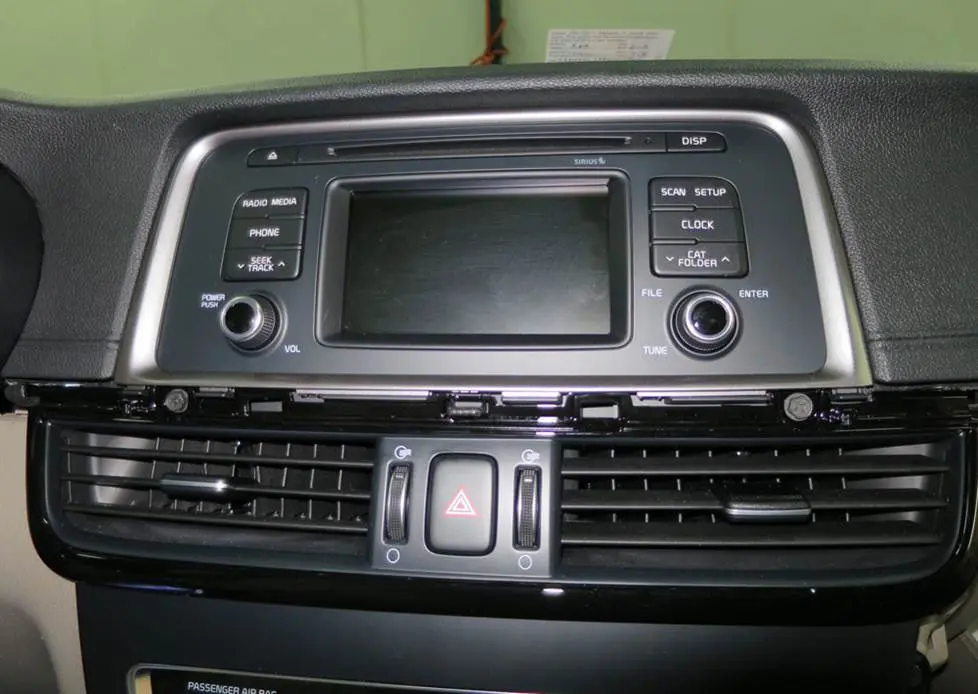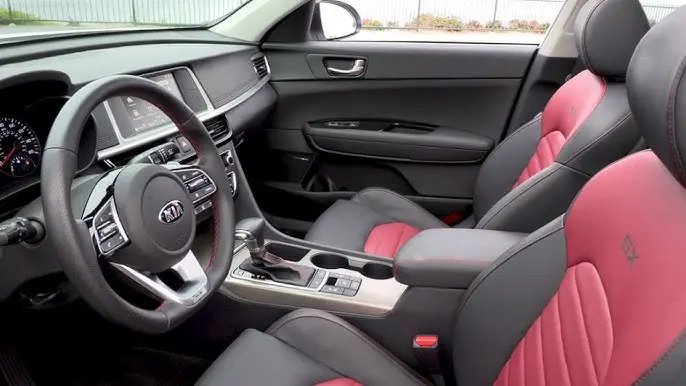Why Not to Replace Kia Optima Infinity Sound System: The Kia Optima, known for its sleek design, reliable performance, and advanced technology, has been a favorite among car enthusiasts for years. One of the standout features in the Kia Optima is its Infinity sound system, designed to deliver an exceptional audio experience. However, some car owners might consider replacing this system, either in pursuit of better sound quality or simply because they enjoy customizing their vehicles. Before you make that decision, it’s important to understand why replacing the Infinity sound system in your Kia Optima might not be the best idea.

The Infinity Sound System: What Makes It Special?
The Infinity sound system in the Kia Optima is not just any audio setup; it’s a carefully engineered system designed to complement the vehicle’s interior acoustics. Here’s why it’s special:
Premium Audio Quality
- The Infinity sound system is developed by Harman International, a company renowned for its high-quality audio products. The system in the Kia Optima features multiple speakers strategically placed throughout the vehicle to ensure a balanced and immersive sound experience. Whether you’re listening to classical music, rock, or podcasts, the system is calibrated to deliver clear highs, rich mids, and deep lows.
Tailored to the Vehicle’s Acoustics
- One of the main advantages of the Infinity sound system is that it is specifically designed for the Kia Optima’s interior. The engineers consider the car’s size, shape, and materials when tuning the sound system. This level of customization ensures that the audio performance is optimized for the environment, something that a generic aftermarket system might struggle to achieve.
Integration with Vehicle Controls
- The Infinity sound system is seamlessly integrated with the Kia Optima’s controls. This includes everything from the steering wheel-mounted audio controls to the infotainment system. This level of integration means you can control your audio experience without taking your hands off the wheel or your eyes off the road, enhancing safety and convenience.
Potential Downsides of Replacing the Infinity Sound System
While the idea of upgrading your sound system might be tempting, there are several reasons why it may not be worth the hassle:
Loss of Integration
- As mentioned earlier, the Infinity sound system is designed to work seamlessly with the Kia Optima’s existing controls and infotainment system. Replacing it with an aftermarket system could result in a loss of this integration. You might find that the new system doesn’t respond as smoothly to the car’s built-in controls, leading to a less user-friendly experience.
Compromised Audio Quality
- While aftermarket sound systems can offer excellent audio quality, achieving the same level of integration and tuning as the original Infinity system is challenging. The acoustics of the car are specifically tuned for the Infinity system, and replacing it with another system could result in subpar audio performance. You might end up with a system that sounds louder but lacks the clarity and balance of the original setup.

Potential Electrical Issues
- Modern cars are highly computerized, and the audio system is often tied into other electronic systems within the vehicle. Replacing the factory-installed sound system can sometimes cause unforeseen electrical issues, such as problems with the car’s computer system, battery drain, or even interference with other electronic components.
Resale Value Impact
- Original equipment manufacturer (OEM) parts, like the Infinity sound system, are generally viewed more favorably in the resale market than aftermarket modifications. Potential buyers may view a non-factory sound system as a red flag, either because they perceive it as a sign of improper modifications or because they prefer the original setup. This could potentially lower your vehicle’s resale value.
The Cost Factor
Replacing the Infinity sound system can also be an expensive endeavor. Here’s why:
High-Quality Aftermarket Systems Are Costly
- To achieve sound quality that rivals or surpasses the Infinity system, you’d need to invest in a high-end aftermarket audio system. This can be expensive, with some premium systems costing thousands of dollars. Additionally, you may need to invest in soundproofing materials, amplifiers, and subwoofers, which can add to the overall cost.
Installation Costs
- Installing an aftermarket sound system is not a simple plug-and-play task. It requires professional installation to ensure that everything is wired correctly and that the system integrates as smoothly as possible with your car’s existing electronics. Professional installation adds another layer of cost to the project, and if not done correctly, could lead to the issues mentioned earlier.
Potential Need for Additional Modifications
- Depending on the aftermarket system you choose, you may also need to make additional modifications to your vehicle’s interior. This could include cutting into panels, adding new mounts, or even modifying the dashboard to accommodate a new head unit. These modifications can be costly and may alter the interior aesthetics of your vehicle.
Alternatives to Replacing the Infinity Sound System
If you’re unsatisfied with the audio quality of your Kia Optima’s Infinity sound system but hesitant about replacing it, there are alternatives that can enhance your listening experience without the need for a full replacement:
Upgrading Specific Components
- Rather than replacing the entire system, consider upgrading specific components. For example, you could add a subwoofer for deeper bass or replace the factory speakers with higher-quality aftermarket ones that are compatible with the existing system. This approach allows you to enhance your audio experience while retaining the integration and tuning of the original system.
Using Audio Enhancers
- There are various audio enhancers and signal processors available that can improve the quality of your existing sound system. These devices work by refining the audio signal before it reaches the speakers, resulting in clearer sound with better detail and dynamics.
Soundproofing Your Vehicle
- Another way to improve your audio experience is by reducing external noise through soundproofing. Adding sound-deadening materials to your car’s doors, floor, and trunk can create a quieter environment, allowing you to hear more detail from your existing sound system.

Real-World Experiences: What Owners Say
To provide a well-rounded perspective, let’s look at some real-world experiences from Kia Optima owners who have considered replacing or upgrading their Infinity sound system:
- Satisfied Owners: Many owners are highly satisfied with the factory Infinity sound system, praising its clarity, depth, and balanced sound profile. They often highlight the system’s ability to deliver a premium audio experience without the need for additional upgrades.
- Upgrade Enthusiasts: Some owners who are passionate about car audio have chosen to upgrade specific components, such as adding a subwoofer or replacing the factory speakers. These upgrades are often done to enhance bass response or improve clarity at higher volumes, but without completely replacing the system.
- Those Who Replaced It: A smaller number of owners have chosen to replace the entire system with an aftermarket setup. While some are happy with the results, others report challenges with integration and tuning, leading to mixed feelings about whether the upgrade was worth it.
Also read Unveiling the Depths of Antarvwsna
Conclusion
When considering whether to replace the Infinity sound system in your Kia Optima, it’s important to weigh the pros and cons carefully. The factory system is specifically designed to work seamlessly with your vehicle, offering high-quality audio that is well-tuned to the car’s acoustics. While the allure of a customized, aftermarket sound system is understandable, the potential downsides—including loss of integration, compromised audio quality, electrical issues, and cost—should not be overlooked.
For most Kia Optima owners, the Infinity sound system offers a premium audio experience that meets or exceeds expectations, making a full replacement unnecessary. If you’re looking to improve your sound system, consider upgrading specific components or using audio enhancers that complement the existing setup. These options allow you to enjoy better sound quality without sacrificing the integration and reliability of the factory system.
In the end, the decision comes down to your priorities and how much you value the factory integration and tuning of the Infinity sound system. For those who value a hassle-free, high-quality audio experience, sticking with the original system—perhaps with a few carefully chosen upgrades—might be the best choice.





